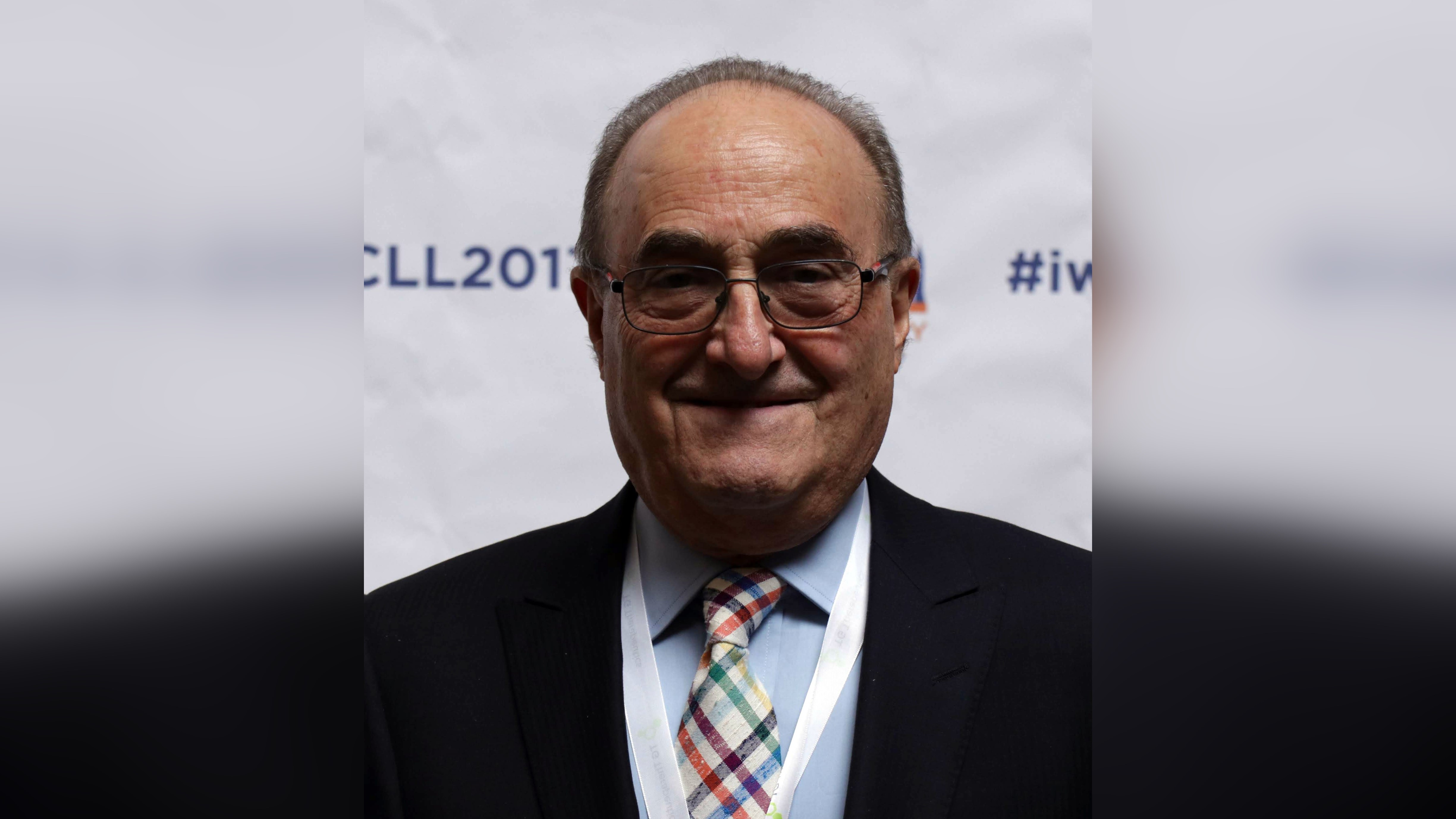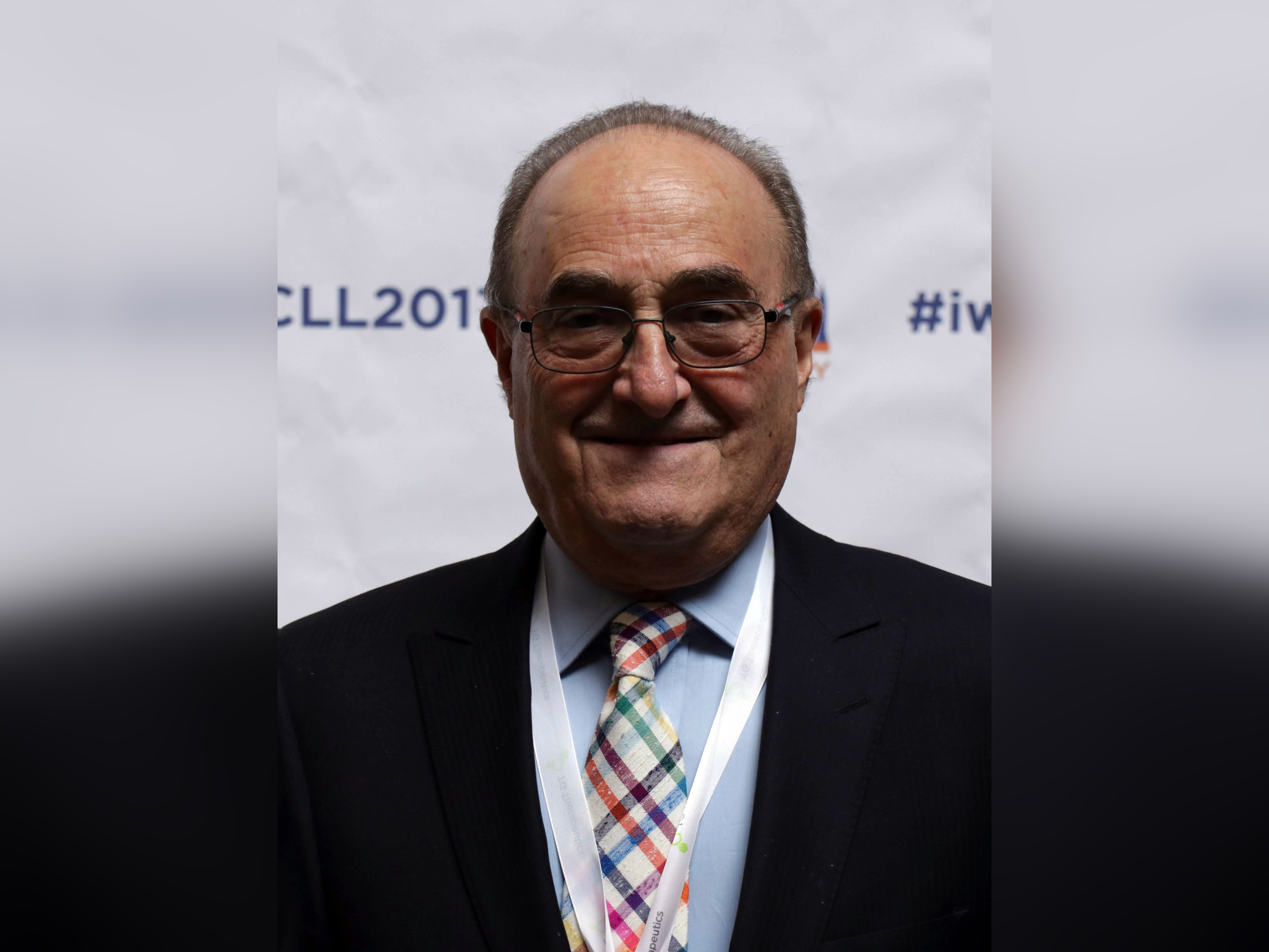 Scientists and clinicians at The Institute of Cancer Research, London, and from around the world, have shared their condolences and celebrated the many achievements of Professor Daniel Catovsky, who died last week.
Scientists and clinicians at The Institute of Cancer Research, London, and from around the world, have shared their condolences and celebrated the many achievements of Professor Daniel Catovsky, who died last week.
Professor Catovsky had an exceptional international reputation as a haematologist and specialist in adult blood cell cancers. He was particularly focused on chronic lymphocytic leukaemia (CLL) but also studied other, rarer conditions such as prolymphocytic leukaemia and hairy cell leukaemia.
Improving diagnosis and treatment of leukaemia
The most recognised of his achievements was how he standardised diagnostic methods and the treatment of CLL through clinical trials. He was also extensively involved in the training of junior haematologists.
Born in Argentina, Daniel Catovsky qualified in medicine in Buenos Aires in 1961. He left the country with his wife, Professor Dame Julia Polak, in the late 1960s to come to the UK to work with Professor David Galton at the Hammersmith Hospital who, at the time, was one of the UK’s first haemato-oncologists. Galton had previously been at the ICR and The Royal Marsden and it would be there that Professor Catovsky would move in 1988 to be Head of Academic Haematology.
From 1978 to 1998, Professor Catovsky led three randomised trials into CLL treatments sponsored by the Medical Research Council, working with the Oxford Clinical Trial Service Unit. Those three trials were followed by the Leukaemia Research Fund (LRF) CLL4 trial in 1999, which resulted in more than 30 papers. The early CLL trials helped Catovsky and his colleagues to learn a lot about the main chemotherapy agent available for CLL, chlorambucil, and how best to use it.
Professor Catovsky was elected the Academy of Medical Sciences in 1999. He was awarded the British Society for Haematology's medal for contributions to British haematology in 2000 and the Rai Binet Medal for outstanding contributions to CLL research in 2005.
An active retirement
Professor Catovsky retired in 2003 but was still scientifically active as an ICR Fellow attached to Professor Sir Mel Greaves’ team. He continued to work with his close colleague Monica Else and, despite retirement, forged many successful collaborations with, for example, Professor Richard Houlston at the ICR and many others internationally.
Only last year he co-authored a paper with Monica Else that showed that death from infection – the leading cause of death for CLL patients – is linked to specific gene mutations. The findings indicated that testing for these mutations could be used to identify patients at a higher risk of dying from infection and inform disease management strategies.
Professor Catovsky’s wife, Professor Dame Julia Polak, was a distinguished pathologist at Hammersmith Hospital who, after undergoing a heart and lung transplant in 1995, decided to move from pathology into the emerging field of tissue engineering and became Head of the Centre for Tissue Engineering and Regenerative Medicine at Imperial College London. She died in August 2014. They had two sons and a daughter but tragically they lost their daughter, a successful barrister, after she was killed in an accident while crossing London Bridge.
A wonderful mentor and human being
Professor Sir Mel Greaves, Founding Director of the ICR Centre for Evolution and Cancer and Professor of Cell Biology at the ICR, said:
“In the late 1990s, Nature published a listing of the most prolifically publishing clinical scientists in oncology worldwide. As I recall, Daniel was eighth. But Julia, to Daniel’s great delight and amusement, was sixth! I told him he needed to pull his socks up.
“There has been a huge response to Daniel’s passing with many colleagues and friends from all over the world expressing their profound sadness and how much they admired and respected him as a wonderful mentor and human being. He will be greatly missed.”
Professor Richard Houlston, Professor of Molecular and Population Genetics at the ICR, said:
“It has been my privilege to have had Daniel as a colleague and friend for the last 25 years. From my first meeting with Daniel to when I met with him only a month or so ago, he was always enthusiastic and excited about research.
“He encouraged me to work on the genetics of CLL, which was a great passion of his and a disease that he really put on the map – describing the key features of the disease and how it should be managed. Working with him on CLL has revealed great insights into the aetiology and biology of this common cancer. As many know, he has influenced the treatment of CLL not only directly through his work but also through nurturing haematologists around the world. I will truly miss his friendship and warmth.”
